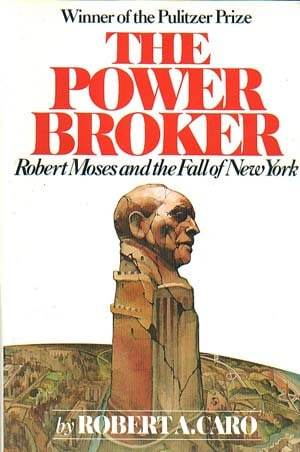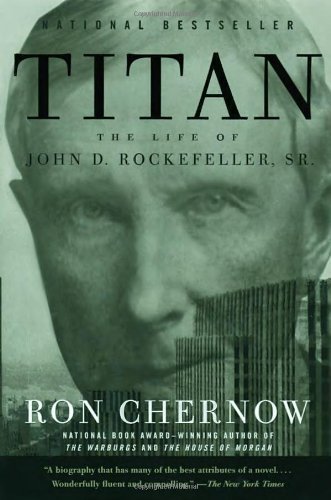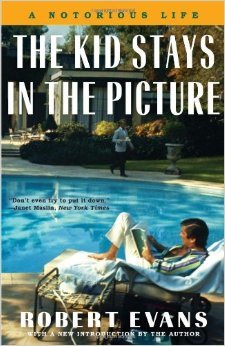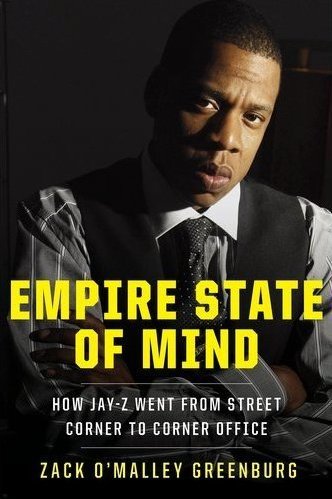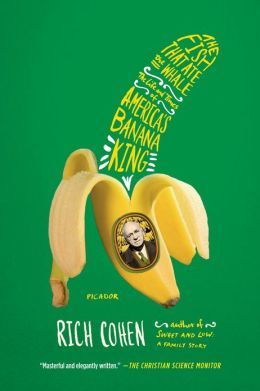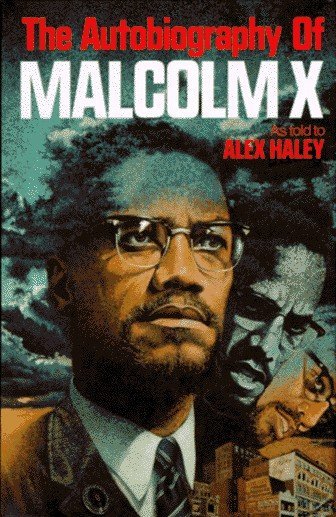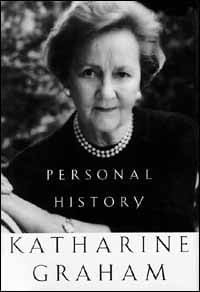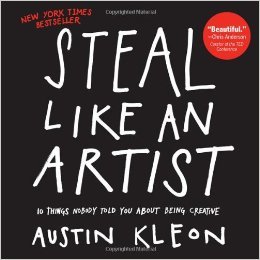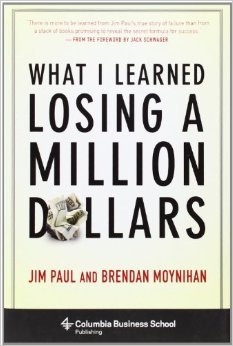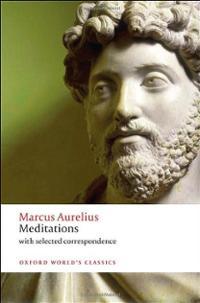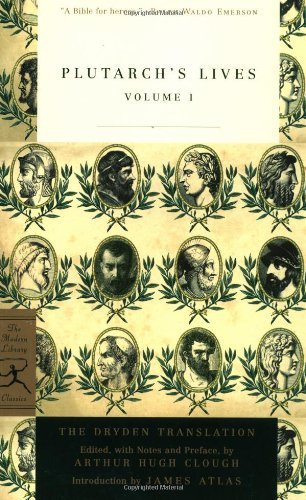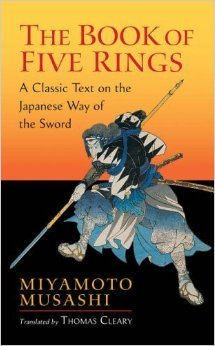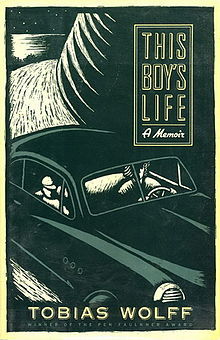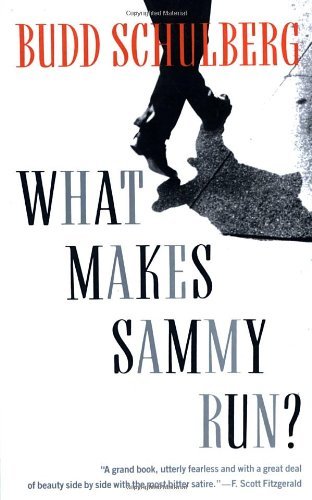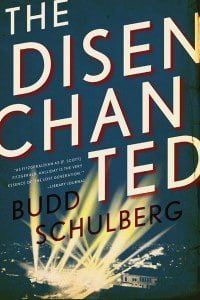Ryan Holiday's Blog, page 23
March 27, 2018
40 Ways To Live A Full Life (And Leave Nothing On The Table) By Age 30

A weird, and somewhat morbid thought occurs to me from time to time. When I am on a plane and the turbulence hits, when a car veers out into traffic, when I hear about someone I know who died suddenly: I don’t get scared. I just think, “If this is it, alright.”
At 30, this is a wonderful place to be.
So while it might seem morbid to say that I’d be happy going at any moment, it’s actually a wonderful way to live. It’s something I feel quite lucky to be able to say. And yet, I also know that it wasn’t a result of luck, but of a certain philosophical way of thinking and, of course, a lot of hard decisions.
***
1. Do Ridiculous Things
Some of the best decisions of my life came out of total irresponsibility and whim. My wife and I got a dog because I was reading a book about how Pope Leo X had a pet elephant named Hanno. That’d be a funny name for a dog, I thought. A week later, we had a miniature dachshund puppy. One of the best things I ever did. Our dog is now ten years old. There’s no story behind how we got our first goat except that we asked ourselves: Why not? So we got a goat and had Smitty’s BBQ on the way home and called it a day.
2. Not What Will Pay The Most, But What Will Teach Me The Most?
This is how I have evaluated my career and job opportunities (and book projects too). There are lots of ways to make money, fewer real opportunities to learn.
3. Quit Dicking Around
The books I’ve been fortunate enough to write were not the result of mad sprints of intensity. I get up every day and work on them. One right after another. While I’m waiting for one to come back from the printer, I am hard at work on the next one. Basically, I’m not dicking around. 30 years is so much time. One year is so much time. Wake up every day and do a little more. Dick around a little less. See what happens.
4. “The Right Time is Right Now.”
This is Casey Neistat’s line. It’s great. When I moved to a farm, do you know how many people I heard from telling me they’ve always wanted to do that? Let me tell you, it wasn’t a tough vetting process. It’s not like getting into Harvard. If you think you want to do it, do it.
5. Get Married. Be in a Long Term Relationship.
People say they want to end up with someone, they say they want to get married someday, and then what do they do? Everything but what makes that possible. Pick a person and be in a relationship already. It’s the best thing you will ever do. It’s a lot of work. It will be painful and tough at times. But it is better than the affluenza of Tinder. I’m not saying settle, but I am saying that relationships are great because you make them great, not because you search until you magically find one that’s already perfect. And enough with this polyamory nonsense. Maybe it makes .01% of the population happier, but the fact that they need to sell everyone on it so much makes me think it’s probably not working for them either. Neil Strauss wrote a wonderful book about this, don’t waste a decade of your life being an idiot.
6. Steer Clear of Charlatans and the Toxic
Regular friend purges are a must. So are influence purges (the sources of information you follow). You become who you know. You conform to your surroundings. Make sure those two facts are taking you in a direction you want to go.
7. Keep a Journal
Not for looking backward, but to force you to think about what you’re doing now. I should have done this earlier.
8. Hell Yes or Hell No is Too Simple
Most of the best decisions I made would have failed that test. I was scared. I had doubts. I didn’t know if it was what I really wanted. Life is complicated and life decisions are about weighing the odds, not black and white certainties.
9. Live in New York or Los Angeles (Or a City Like That)
…but not for long. It’s good to test yourself in a big city. It’s good to feel the energy of millions of people coursing through your veins. But leave before you become jaded by it or addicted to it. Leave before it changes your lifestyle.
10. The Quiet Moments Are The Best
There is a line from Lao Tzu. “Peace is in the emptiness. Emptiness is in the fast of the mind.” It’s in the quiet, still moments that we feel what matters in life. Standing on the shore of a lake. Looking out over a canyon. Resting your head against someone else’s. It’s a shortage of these moments that give rise to the feeling that we haven’t lived enough, that we have to keep going. Seeking them out, encouraging them is what makes you feel like you’ve done plenty.
11. Have a Philosophy
Pete Carroll talks about his turning point as a coach, when he realized he was just winging it. So he stopped and wrote down his entire coaching philosophy. Now he has something to measure himself against. Well, what’s yours? Don’t wing it through your 20s. Focus. Live by something.
12. Make Time For Real Philosophy Too
As Seneca said, “Of all people only those are at leisure who make time for philosophy, only those are really alive. For they not only keep a good watch over their own lifetimes, but they annex every age to theirs.”
13. Exercise Every Single Day
Don’t let yourself get to the point where you feel like some day in the future you’d like to lose weight or be in shape. Be in shape. Make exercise part of your job, part of your duties as a human being. Let endorphins be something you give yourself every day.
14. Don’t Compare Yourself To Other People
Caesar famously wept at the feet of a statue of Alexander the Great. “Do you not think it is matter for sorrow that while Alexander, at my age, was already king of so many peoples, I have as yet achieved no brilliant success?” he said. Um, you were both fucking terrible. And now you’re both gone. Who cares whether so-and-so did this or that earlier than you? Who cares that so-and-so had more?
15. Sooner Is Not Better
I had this idea that I wanted to be a millionaire by 25. Where this number came from, I don’t know. I made it up, it was ego, and I didn’t hit it. But you know what the difference of getting there a little later was? Nothing. No one throws you a party. Accomplishments don’t change who you are.
16. Meditate on Your Mortality
The whole point of this post: Don’t shy away from thinking about death. Think about it a lot. I like Marcus’s line: “Are you afraid of death because you won’t be able to do this anymore?” For “this” plug in so much of the crap we waste our time with.
17. Be Responsible
I have a life insurance policy. I have money saved. If something happens to me, people I care about will be taken care of. The Avocado Toast guy was right. A lot of people are spending money on shit they can’t afford and then they want to blame other people for it.
18. But Not Too Responsible
The reason they will be taken care of and that I feel creatively and professionally satisfied, is that I have taken a lot of big risks. I dropped out of college (this gave me a two year head start on a lot of people). I left a good job. I bit off more than I can could chew many times.
19. The Two Play Off Each Other
Why could I take those risks? Because I had been responsible. I had money saved. I knew what was important to me. I had built a support network. I eliminated the tiny risks so I could take the right ones. I wasn’t spinning the “How will I pay my bills this month?” wheel like so many people unnecessarily are. As I said, do the irresponsible things — because it averages out the ultra-responsible choices you made elsewhere.
20. Don’t Live Like Every Day Is Your Last
In The Daily Stoic, I say that living every day like it’s your last is insane. That would mean zero planning or foresight. Instead, live like it’s the last day of before a deployment. You’d handle your business. You’d spend time with loved ones. You’d cherish your alone time. You’d have fun. That’s how you should live day to day.
21. Travel (With Purpose)
Nothing has wasted more millennial time than the cult of travel for its own sake. So you’ve been to Africa? And? So you’ve spent a month in hostels in Thailand? Yes? What did you really learn there, that you couldn’t have gotten from some other source? What did you really do? What was the purpose of any of it? Wisdom doesn’t come from going places. Not if you, as Emerson said, “brought ruins to ruins.”
22. Be Prematurely Old
When I hear someone say they are ‘adulting’ like it’s a funny exception to how they normally are, I think, “There is a person who is going to wake up one day and think about where all the years went.” But when you hear someone is an “old soul,” you think, “Man, they have their shit together.” Young people are stupid. Old people are wise. Which do you want to be?
23. Remember the Law of Diminishing Returns — For instance with travel — it’s great, but two years of backpacking through Europe is two years of your life.Who is to say you have that much time? Chances are, at some point, you extracted most of the value of whatever it is you’re doing, but you’re just coasting now. A year in New York can be transformative, ten years will ossify you. Be willing to call things when the diminishing returns set in, it’s how you move on when others are stuck.
24. Study the Lives of the Greats
Read Plutarch. Read Vasari. Read Caro’s biographies of LBJ. Not to compare yourself, as I said, but to learn. The dissections of the lives of powerful, ambitious people will teach you so much, and save you some much pain and heartache and disaster.
25. Don’t Waste Time Being Offended
God, how much precious energy is spilled fighting online, shouting in other people’s faces. A well-ordered person never thinks, “How dare they?” because they don’t have those kind of expectations of other people and they don’t think their own feelings are other people’s problem.
26. Buy a House
Not at 20, not before you can afford it obviously, and not some expensive albatross that weighs you down, but something reasonable, that you love. If I had bought an apartment I’d look at when I was 22, I don’t know if I would have left my job to become a writer. If I hadn’t bought a house when I was 26, I don’t think I would have truly understood what I wanted out of life and where I was happy — I’d still be moving, still be too busy. Owning a home is having a home. It’s somewhere I want to get back to. The center I revolve around. My friend Nils likes to say that people who don’t own walls with art on them are running from something. I think he’s right.
27. Work a Lot
Everyone loves to repeat that line, “On your deathbed, you won’t be happy you worked so much.” Um, I’m very proud of what I do. I will be reflecting happily on all of it. What no one sits there and thinks is how glad they are that they got good at video games, how many restaurants they ate at, the time they spent chasing girls or boys, or political arguments they got into. There are many many many more wasteful and regrettable things we do than work. Pouring yourself into something you believe contributes to the world is one of the best ways to feel content and accomplished. Don’t sell this short.
28. Drive across the United States
No one should die before they have done this.
29. Hallucinogens Are A Dead End
I certainly have smart friends who will disagree with this, but I haven’t heard a single person tell me something they learned on psychotropic drugs that couldn’t have been learned quietly sitting with their own thoughts. I haven’t heard anything from them that I haven’t heard in a book. If your trip to the jungle in Peru is the magical solution to all your problems, you’re going to be sorely disappointed. You’re looking for shortcuts. Life is not found in shortcuts, but in doing the hard stuff (and if it really did work, then why are do they need to them over and over and over again? Hallucinogens are to insight what Oxy is to pain relief).
30. Don’t Be A Hater
My biggest regret is time I have spent being envious or jealous or hating. Hating doesn’t make anyone better. It only makes you unhappier. “Hate will get you every time.” Life is too short. Find what you love about people, what you can be grateful for in them, even if that is a minor part of them.
31. Read Books. Lots of Them
Any fool can learn by experience, I prefer to learn by the experiences of others, is how Bismark put it. The amount of dumb things I’ve managed to avoid because I learned the lesson in advance? Too many to count.
32. Have a Kid
I used to see people in restaurants with kids and sort of pity them. The other day I was in a restaurant with my kid, having a great time and then I realized: Shit, these people have been having all the fun. I was the one being an idiot. Obviously I would like to live until I’m 90 so I can spend as many years as possible with my son, but as Paul Kalanithi says in When Breath Becomes Air, every minute you do have is a blessing and comfort.
33. Seriously, You Can Do Whatever You Want
That Steve Jobs line about how the rules were made up by people no smarter than you. Make sure you’re not conforming to needless constraints about how to dress, how to live, what’s important, how things must be done. The more value you deliver in life, the most freedom and power you have.
34. Avoid Competition
Sometimes competition makes you better, but more often than not, as Peter Thiel explained, it just eats up resources. Don’t spend precious years of your life in trench warfare or in a stalemate. Go where there is no competition — seek out the blue oceans. The best way to do that? Be you. Do only the things you can do.
35. Know Your Why
You have to know why you do what you do — what you prize and what’s important to you. Or you will be endlessly comparing yourself against other people, which will not only be a major distraction, it will make you miserable.
36. Know What’s “Enough”
If you don’t know what “enough” is, then the default answer is always more. More money, more promotions, more attention. You have to know when you can say no — so you don’t overreach and lose it all.
37. Get the Big Things Right
There’s the old Benjamin Franklin line about being a penny wise but a pound foolish. It’s the same thing with time management. Most people get the little things right and the big things wrong — and then wonder why they don’t get much done.
38. A To-Do List Every Day
Every day have a to-do list. Even on the weekends. Not because it’s about drowning yourself in work, but so you can always be moving forward. Check the stuff off, don’t wing it. Use Tim Ferriss’s question: “If this were the only thing I accomplished today, would I be satisfied with my day?”
39. Design The Ideal Day
So many people have big goals for the future. I think it’s better to know what your perfect day looks like. Then you can ask yourself with each opportunity and choice: Is this getting me closer or further away? I know my ideal day and more importantly, I know when I have gotten too far from it. Life is too short to not live the way you want.
40. Learning Is Not Enough
It’s very easy for learning to go in one ear and out the other. Making a concerted effort to record and process what you’re observing and being taught helps prevent that. If you read a lot, take notes on what you read and transfer those notes into a commonplace book, where you can organize your thoughts. Repeating and reiterating what you’ve learned helps make connections and improve memory. Organizing it into a system means it will be so much easier to retrieve when you need it.
***
I’ll end this post with a paragraph from Mozart, who lived to be 35 but filled those years with many, many decades of life and work.
“I have now made a habit of being prepared in all affairs of life for the worst. As death, when we come to consider it closely, is the true goal of our existence, I have formed during the last few years such close relationships with this best and truest friend of mankind that his image is not only no longer terrifying to me but is indeed very soothing and consoling, and I thank my God for graciously granting me the opportunity of learning that death is the key which unlocks the door to our true happiness. I never lie down at night without reflecting that — young as I am — I may not live to see another day. Yet not one of all my acquaintances could say that in my company I am morose or disgruntled. For this blessing I daily thank my creator.”
Like to Read?
I’ve created a list of 15 books you’ve never heard of that will alter your worldview and help you excel at your career.
Get the secret book list here!
This article was originally published on Thought Catalog .
January 1, 2018
Seriously, You—Ok, We—Need To Stop Watching The News This Year
If we were to define the word “philosophy” in both its academic and colloquial sense—that is, actual “philosophy” and the more casual “She responded philosophically”—we might say that it means both to get to the fundamental truth of things as well as to view things calmly and with perspective.
And with this definition, we can also clearly say what the opposite of philosophy and philosophical is. It’s the device in your pocket. The one whose home screen looks like this:

Or this.

Or this.

Or maybe you carry a little device on your wrist that hits you with little vibrations to tell you breaking news about the weather of half the continent.

The constant interruptions and distractions of our society are, to me, the opposite of philosophy. Getting caught up in minutiae. Getting caught up in things that don’t matter. Getting caught up in things that are designed to exploit and antagonize us and our emotions.
I’m not just referring to apps and games and phone calls of course. I am mostly referring to the news. Take Donald Trump’s media diet, which as I understand it, far predates his presidency. Every morning he gets up very early and watches Fox & Friends, which he calls the most honest morning show. If you’ve ever watched Fox & Friends you know that’s definitely not true. He reads multiple newspapers a day. He has his online news printed out and brought to him, and then he reads them. In the evening he watches all the magazine shows like Sean Hannity and before it was cancelled, The O’Reilly Factor, which are basically just opinions about things that happened earlier in the day and then chimes in with his own opinion on Twitter while he does it. And on the weekend he watches Saturday Night Live.
I don’t think it’s a partisan point to say that that sounds absolutely awful. Although, I would venture to guess, it’s not far from the diets of most of you reading this. Maybe you’d sub in more time on Facebook. Or you’d watch Rachel Maddow instead of Sean Hannity. Maybe you don’t print out articles but you save yours to Pocket or Instapaper and read them while you’re in the bathroom or on the train. And maybe you also consume a steady diet of ESPN and CBS Sports for your fantasy team. Or maybe you follow the movie business or the stock market.
The amount of information we consume on a daily basis is embarrassing.
I know it is for me.
I remember after the 2016 election, I’d read more news that year than any other year of my life. Like nearly everyone in America, I was convinced (though not exactly excited) that Hillary would win. I read all those opinion pieces that said she was going to win and why she was going to win and why this election was just an aberration. Then the actual election returns sent my wife into labor.
My son was born on November 9th. I was in the hospital with the nurses and my wife and me had a few minutes for a break. And what did I find myself doing? Reading another news from a person whose articles I’d read many times over the past several months who had been totally and completely wrong every step of the way. Here I was in seemingly one of the most important moments of my life reading more information from this person pretending that he hadn’t been wrong the entire time.
Now that’s an extreme example, obviously, and I sympathize with the fact that the election was a traumatic event for a lot of people. So here’s something a little more common: I live in Texas so this year I found myself glued to the coverage of Hurricane Harvey. This was a real thing, it was coming to my area, and I needed to know if I should evacuate and what I needed to prepare for. There was so much on the line for me: my house could have been destroyed, there could have been flooding, etc. Thankfully we were mostly unscathed (though we did end up with some very costly repairs). If you remember, Harvey was followed almost immediately by another hurricane. Irma came up the coast of Florida just 10 days after Harvey left Houston. I found myself watching the coverage of Irma, too, and it was as riveting and dire. But here’s the thing: I don’t live in Florida. Of course, what happened to those poor people in Florida or Puerto Rico was important but that doesn’t explain why I was watching it with the same seriousness I had consumed the coverage days before. This is what is so brilliant about what the news producers can do: Tune in, we have a breaking news alert, follow this, see what’s going on, look at these compelling pictures. All the while I’m neglecting the bigger things in my life—literally the repairs that need to be made from the hurricane I just survived!
Although we’ve had newspapers for as long as the modern state has existed, previous generations didn’t have to deal with this. Leaders didn’t. Citizens didn’t. It might have taken months for news to make it from one coast to the other coast or across the Atlantic. So leaders of past eras were able to more naturally take this longer view. Citizens too. Even the run-up to WWII, arguably the most important and deadly event of the 20th century, developed over 6 years. Meanwhile, we’re following the news like the world spontaneously combusted.
If you want to see how much the internet has changed things here’s an ad posting for the Washington Post from a few years ago. They’re looking for a blogger to post 12 times a day. I don’t know if any of you blog for a living, but it is very hard to come up with 12 articles in one day. After about 5 or 6 you just start making stuff up, so if you wonder why the news is the way that it is, this is largely a part of it. There used to be a finite amount of space, even a 24/7 news network only has 24 hours in a day. And there are reruns, commercial breaks.
To me, nothing captures our news and social media ecosystem quite like this photo:

Credits: Evy Mages
For an internet publisher, they have infinite space. They have an unlimited amount of things that they can publish, so as you would expect we have lots more news than we’ve ever had before. It’s exhausting and it manipulates us and it works us up into these fits.
We must give credit to Nick Denton, the founder of Gawker, who five years before the rise of fake news accurately detailed the extent to which most news is fake.
“Fake news. I don’t mean fake news in the Fox News sense. I mean the fake news that clogs up most newspapers and most news websites, for that matter. The new initiative will go nowhere. The new policy isn’t new at all…The product isn’t revolutionary. And journalists pretend that these official statements and company press releases actually constitute news…Fake news, manufactured, hyped, rehashed, retracted—until at the end of the week you know no more than at the beginning. You really might as well wait for a weekly like the Economist to tell you what the net position is at the end of the week.”
He’s saying most of the things that you read aren’t going to go anywhere—it’s not revolutionary, it’s not new, it’s not important. These are press releases, government statements, manufactured hype, speculation, opinions about things. Why? Because reporters are trying to write 12 posts a day. Reporters are trying to beat other outlets by five seconds so they can get all the traffic for a “scoop” that is going to be rendered irrelevant by the “scoop” that comes out tomorrow.
It’s true for platforms too. As a former data scientist at Facebook explained,
“The fundamental purpose of most people at Facebook working on data is to influence and alter people’s moods and behaviour. They are doing it all the time to make you like stories more, to click on more ads, to spend more time on the site.”
Facebook is not unlike a casino. You ever notice that there are no clocks in a casino? They don’t want you to know what time it is or how long you’ve been there. Facebook is sort of the same thing. It’s designed to keep you in Facebook as long as possible, clicking as many things as possible. Uploading, sharing, intertwining your life into the social network. So on the one hand that is a large part of why we are so obsessed with the news despite our understanding of how misleading it often is.
The same goes for every other publisher or platform. Television doesn’t want you to get up and take action, they want you to sit through the commercial break. A news outlet doesn’t want you to be so outraged by an article that you do something, that you decide to change the world, they want you to be so outraged that you sign a Change.org petition and then consider it a job well done.
But I would say that there’s another part. I would say that one of the other reasons for our news addiction is ego. Facebook and news publishers understand how much of our identity is tied up in this consumption and that’s what they manipulate. It’s this need to be seen as well informed. We have this great word now: virtue signalling. Knowing everything that’s going on in the world, having an opinion on these news stories, having the right opinion on these news stories, we believe says something about us. We want to be in the club of the elite, smart, informed intelligent, compassionate, interesting people. We don’t want to be on the side of the ignorant people or the people who have tuned out. These are what the publishers exploit. They know some people on the right want to hear this and some people on the left want to hear that and that’s exactly what they cater to. That’s exactly the content that they create.

Credits: John Holcroft
Ah, but this is not philosophy. Epictetus said it best. “If you want to improve, be content to be thought foolish and stupid with regard to external things.”
In other words: Stop watching the news. Turn off all the alerts on your phone. Alerts for texts, for social media, remove the news sites from your phone as well. Delete Facebook, Instagram, Twitter—all of them. You can still consume information of course, but see what happens when you don’t carry it around in your pocket and allow it to interrupt you in the middle of everything that you do. No wonder we don’t have time for philosophy or thinking about these big issues when we’re pinged by every CNN breaking news on our wrists in real time. If we can remove ourselves, create some distance between those breaking news alerts and our reflective, contemplative time, we’re going to be able to think about bigger and more important things.
Aziz Ansari got in trouble a couple months back for saying he had stopped reading news on the internet. His response was great: “I’m not choosing ignorance. I’m choosing to not watch wrestling.” He’s still learning and reading—he’s just not following the show that we call the “news.” He’s come to the same conclusion that Obama came to in office—that political television is the absolute worst thing you can watch, and that saying away from it is how you “stay focused on the task, as opposed to worrying about the noise.”
And of the information you do consume, ask yourself about its half-life. I found it fascinating to learn that the most popular book in the state and defense departments right now is Thucydides’ The History of the Peloponnesian War. What does it say that the people who have access to the best intelligence on the planet—spies, dossiers, diplomats, satellite imagery—are reading a book published about a war between Athens and Sparta 2,500 years ago. But it makes sense: The wisdom in that book has stood the test of time. It goes to the essence of human nature and to conflicts between great powers.
The news is designed, by definition, not to last. It’s the ticker tape of what the sociologist E. Robert Kelly once called the “specious present.” So you’ll read something else tomorrow and you’ll read another new story the following day. Since you don’t pay for it they have to create lots and lots of it to make for in volume what they lack in margins. So ask yourself: Is this thing that I’m consuming likely to still be relevant, still be important, in a day? Or in five days, or in a week or in a year or five years?
I urge you to take that bigger picture. In one of the poet Lucian’s dialogues he takes flight and flies above the earth and he’s able to see the petty squabbles of the day in perspective. Even armies fighting each other, he says, look like ants fighting over a tiny mole hill. That’s the view that we want to take on these things. (In fact this is a pretty common device in ancient philosophy from Plato to Marcus Aurelius). That’s the view that we want to take on these things to give us perspective, to show us what really matters. Whereas if we’d zoomed in on these things and focused on the things that matter to our identity we lose the larger picture.

Speaking of larger pictures I would encourage you to take a second to look again at the famous blue marble photo. You’ve probably seen it a hundred times and not known the story behind what you were looking at. The photo was taken in 1972 by the astronauts on the Apollo 17 mission. It was taken approximately 18,000 miles from earth—it’s actually the first photo of earth that we have in its totality. It’s amazing to think that for all of human history up until that moment we had never been able to actually see what the earth looked like. The highest viewpoint that you could get would have been on a mountaintop. It’s only in the modern era that we have the gift of this perspective and yet all we’re focused on is the tiny minutiae of what happens to have made the news that minute.
The reason I ask you to look at it is that the few astronauts—the couple hundred people out of the billions who have ever lived—that have had the privilege of actually seeing the world from this perspective in person talk about this thing called the overview effect. They say when you’re in space and you’re looking down on earth, you feel this wave of tranquility and peace and perspective that you could never have on earth. One of the astronauts who talks about this says that when you see this you are struck immediately with a sense of global consciousness and a compassion for other people that it makes you want to grab a politician by the scruff of the neck and drag him a quarter of a million miles out and say, “Look at that, you son of a bitch.”
There’s a neighbor of mine in Austin who is the oldest living veteran in the United States and we sometimes sit on the porch and talk. He was born in 1906—he’s 112 years old. He lived through two world wars, the Spanish Flu, the Great Depression, segregation. Nothing gives me the Overview Effect quite like sitting next to a human being who was born when Theodore Roosevelt was president. The oldest living veteran when Richard was born was a veteran of the Blackhawk War which was fought in 1832 against the American Indians. So again, history seems very long but only two lifetimes takes you back to almost the very beginnings of this country.
When Richard sits on his porch, he sees the neighbors he knows by name, and people he has helped. He sees the trees he planted himself. He cherishes his friends and his family and enjoys his cigar while he shakes his head at the absurdity of life. This is the attitude that I think allows us to endure the craziness of the world. Are we heading in a good direction or a bad direction? I’m going to be who I’m going to be, I’m going to do the right thing in the moment and I’m not going to be whipsawed from one direction to the other.
When you look at earth from all those thousands of miles away you feel that larger feeling—that oceanic feeling—that connectedness. The stresses and the distractions that we carry in our pockets or we wear on our wrists or we see on our computer when we sit down to work don’t seem so significant and the conflicts we have don’t seem so insurmountable and the right thing doesn’t seem so far away. This egotistical desire to know exactly what’s going on, to understand every fight and the causes of every problem? It falls away.
Walker Percy, who is my favorite novelist, has a remarkable passage that I’d like to close with.
“Can a man stand alone, naked, and at his ease, wrist flexed at his side like Michelangelo’s David, without assistance, without diversion…in silence? Yes. It is possible to stand. Nothing happened. I listened. There was no sound: no boats on the river, no trucks on the road, not even cicada. What if I didn’t listen to the news? I didn’t. Nothing happened. I realized I had been afraid of the silence.”
All this noise. All this news. We are afraid of the silence. We are afraid of looking stupid. We’re willing to drive ourselves insane—miserable—to avoid that.
And what would happen if we stopped?
We could live. We could get real clarity. And with it, maybe we could be the little bit of change that we want to see in the world.
Ryan Holiday is the best-selling author of Trust Me, I’m Lying: Confessions of a Media Manipulator . Ryan is an editor-at-large for the Observer, and he lives in Austin, Texas.
He’s also put together this list of 15 books that you’ve probably never heard of that will alter your worldview, help you excel at your career and teach you how to live a better life.
December 18, 2017
The Unstoppable Power of Greeting It All With A Smile
After defeating—facing barely any resistance—the then-reigning world champion, Jack Johnson is unquestionably the best boxer on the planet. Yet it is 1910 and the idea of a champion black boxer is intolerable to the sport, so a challenger is found to try and beat him. That man is Jim Jeffries, the “Great White Hope,” the former champion, called out of retirement like some deranged Cincinnatus to defeat this black menace.
In some ways, what followed was one of the nastiest and lowest moments in the history of sports. Johnson is hated by the crowd. They booed and shouted horrible things, 20,000 people in a near riotous state the entire fight. Jeffries, his opponent, led the charge against Johnson, saying he would “reclaim the heavyweight championship for the white race,” and taunting: “I propose to give him the worst beating ever given any man in the ring.”
And yet it is also one of the most beautiful moments in sports. Because of how Johnson responded to it. There is Johnson, in the center of the ring in Reno, Nevada with the focus of so much hatred on him, somehow still enjoying every minute of it. Smiling, joking, playing from the opening round until the finish.
Not that he simply took the abuse. Instead, Johnson designed his fight plan around it. At every nasty remark from Jeffries’s corner, he’d give his opponent another lacing. At every low trick or rush from Jeffries, Johnson would mock him and beat it back—but never lose his cool. And when one well-placed blow opened a cut on Johnson’s lip, he kept smiling—a gory, bloody, but nevertheless cheerful smile. The entire fight Johnson was calm, always in control, taking the energy of the crowd as a challenge, to see if he could perform and excel, whether they wanted him to succeed or not. Every round, he got happier, friendlier, as his opponent grew enraged and tired, eventually losing the will to fight. Johnson wasn’t just the ideal sportsman, he was a dominant force in the ring too. Each jeer from the crowd, from his opponent, brought the response it deserved and no more—he let Jeffries dig his own grave. The fight ended with Jeffries on the floor and every doubt about Johnson silenced.
The author Jack London happened to be in the audience that day. And when we remove the disturbing and open racism from the great author’s ringside reports, we find a remarkable paragraph.
“No one understands him, this man who smiles. Well, the story of the fight is the story of a smile. If ever a man won by nothing more fatiguing than a smile, Johnson won today.”
Jack Johnson had come to possess a power not unlike the ones the Stoics commanded themselves to have: Cheerfulness in all situations, especially the bad ones. Who knows where Johnson learned this, but he clearly did. And using it, he managed to turn the terribleness of his situation into fuel.
This is a power because it is so surprising. The racist crowds in Reno had hoped that their hatred would get to Johnson, that he would see how much they disliked him and it would shatter his confidence. Jeffries and his team thought they could make Johnson angry and that in his anger he would fight poorly or irrationally. But to see the man respond to everything with a smile, to respond even to a bleeding, gushing cut on his face with cheerfulness? It was deranged. How do you beat someone you can’t even get to? That gets happier the more you throw at them?
If we can, let’s use this as a metaphor for life. The world is going to try to knock us down. We will face unfairness, animus, even evil. How will we respond? With anger? With rage? By letting it get to us?
No. We should instead respond with the excitement and smile of a Jack Johnson. Writing in his own personal journal which would become known as Meditations, Emperor Marcus Aurelius would say: “A blazing fire makes flame and brightness out of everything that is thrown into it.” This is what Johnson did. Beautifully, wonderfully, bravely. He met it all with a smile.
For these reasons in my pocket I have a coin (which I had minted myself) that says amor fati on it. It has a picture of that fire that Marcus Aurelius was talking about. That phrase, amor fati comes from the German philosopher Friedrich Nietzsche, who said we should not merely bear what life throws at us, but love it. That’s what amor fati means. A love of fate.
When I touch it I like to think of Johnson’s smile, the smile that wins, that wears down opponents and obstacles. And I try to put one on my face and keep going. Because what else am I going to do?
We know that in overcoming adversity we emerge stronger, sharper, empowered. We know that inevitably we will later come to see that whatever we are experiencing right now was for the best. So why not just skip ahead and feel that now? Why wait? Why not smile now?
It may be that the people around us have trouble understanding this. It may be that this smile is a tiny drop in an ocean otherwise filled with blackness and evil. No matter.
If we want to win and we want to live, there is only response.
Amor fati. Cheerfulness. That indefatigable smile.
I carry that coin with me, alongside another one, that says memento mori. Life is finite. It can end at any moment. Who says you have the time to wait to feel better about this later? Who says you can afford the passage of months and years to give you that perspective about your situation?
There is only right now. There is no time to be miserable or angry or bitter.
We think of that other Nietzsche line, the one turned into a cliche at this point: What doesn’t kill me makes me stronger.
Whatever is happening, however horrible the things they’re throwing at you, as long as it doesn’t kill you dead on the spot, there is only one response:
Love it.
Embrace it.
Use it.
#mc_embed_signup{background:#fff; clear:left; font:14px Helvetica,Arial,sans-serif; width:100%;}
/* Add your own MailChimp form style overrides in your site stylesheet or in this style block.
We recommend moving this block and the preceding CSS link to the HEAD of your HTML file. */
Get New Posts From Ryan Holiday Sent Right To Your Inbox
December 11, 2017
The (Very) Best Books I Read In 2017
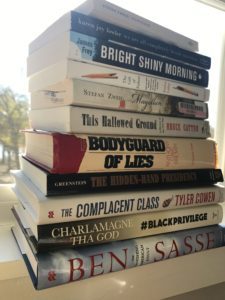
Every year, I try to narrow down the hundred plus books I have recommended and read down to just a handful of the best. The kind of books where if they were the only books I’d read that year, I’d have still have felt like I made a big leap in my education.
I know that people are busy, and we don’t always have time to read as much as we like. Nothing wrong with that (though if you want to read more—don’t look for shortcuts—make more time!). What matters is that when you do read, you pick the right books.
My reading list email is now nearly 90,000 people, and I can tell pretty quickly when a recommendation has landed well. I promise you—you can’t go wrong with any of these. (Also as an accidental confirmation of what I wrote in Perennial Seller, the newest book in this list is 5 years old and the oldest is 79 years old.)
***
Bodyguard of Lies: The Extraordinary True Story of D-Day Vol I & Vol II by Anthony Cave Brown and The Hidden-Hand Presidency: Eisenhower as Leader by Fred I. Greenstein
I have recommended a lot of books on strategy over the years but these two books are two of the best. And I’d never even heard of them before this year. Bodyguard of Lies is in a sense about D-Day but it’s more fully the history of almost every special, covert operation of the Second World War (in fact, Vol I focuses so much on prehistory that it ends with D-Day starting). The premise here is that the Americans believed that the war could be won by overwhelming force. The British—Churchill especially—knew better. They knew how bad their position really was, how far behind they were. Thus the Churchill quote: “In war the truth is so precious it must be surrounded by a bodyguard of lies.” The result was a strategic campaign of misinformation, deception, and intelligence designed to disorient and confuse the Germans and Japanese. The Allies had broken Enigma, they could read the German’s communications, but how could they act on it without giving their access away? How could the Allies hope to land in Europe without being met with overwhelming resistance? Well, they needed to keep as many German troops as possible occupied in different theaters, they needed to spread their defenses out as far as possible, they needed to make the obvious intended landing spot too obvious so that they would assume an attack would come elsewhere. And don’t even get me started about the covert agents they had working inside Germany and the conspirators working against Hitler from the inside. Anthony Brown doesn’t just tell you all this happened, he shows you how it happened, explained why it happens and makes you understand how expertly done it all was. The book is a masterclass in the art of strategy. (No wonder it was one of John Boyd’s favorites).
The Hidden-Hand which I read around the same time is equally a masterclass in leadership. It will give you not just a new appreciation of Eisenhower, but teach you how real leaders get things done: it’s not through talking, it’s not through looking tough, it’s through organization, delegation and through behind the scenes influence. I had no idea how Machiavellian Eisenhower was—and while that might seem like an insult, it isn’t. The perception of Eisenhower was that he was a sweet old guy who didn’t keep up on the day-to-day goings of politics but this was all a brilliant act. He wanted to be seen as above politics, when in reality, he knew exactly how to make hard decisions and steer the country in the direction it needed to go. For instance, people think Eisenhower didn’t do enough to take down Joseph McCarthy. Eisenhower is the one who took McCarthy down—he just didn’t think the president should be seen doing such a thing (His rule was: Never engage in personalities). Eisenhower was what a leader was supposed to be—both an an impressive and inspiring figurehead as well as an effective executive. Our leaders today could take a lesson from that.
I’ve already raved about both these books to a number of politicians, CEOs, and writers I know. I am also using them as a source in my next book, Conspiracy. Please read them.
Montaigne & Magellan by Stefan Zweig
There are two kinds of biographies: Long ones which tell you every fact about the person’s life and short ones which capture the person’s essence and the lessons of their life. These two biographies by Stefan Zweig are brilliant, urgent and important examples of the latter. They are what I would call moral biographies—that is, books that teach you how to live through the story of another person. If you’ve been struggling with the onslaught of negative news and political turmoil, start with Montaigne. Why? It’s the biography of man who retreated from the chaos of 16th century France to study himself, written by a man fleeing the chaos of 20th century Europe. When I say it’s timely, I mean that it’s hard to be a thinking person and not see alarming warning signs about today’s world while reading this book. Yet it also gives us a solution: Turn inward. Master yourself. Montaigne is one of humanity’s greatest treasures—a wise and insightful thinker who never takes himself too seriously. This book helped me get through 2017, no question.
Now if you’re looking for some inspiration and excitement, Magellan is the book for you. What makes a man an explorer? What made Magellan so he could find a passage he had no reason to be certain he could find? And how thankless a job! This man fights multiple wars for his country, is wounded in battle, does more than duty and then, when he has an idea for an exploration of his own, is insolently rejected by his King. So he switches countries and finds backing for that same exploration, convinced he possesses a secret that will allow him passage to the Indies. He is completely wrong. He suffers mutiny, starvation, complete demoralization. He has been misinformed and yet, he finds a passage anyway, not just to the Indies but to an entire new world—becoming the first to circumnavigate the world…and yet he dies before he can enjoy the fame he so justly deserved. Where does this determination come from? Where does this sense for leading and solving unsolvable situations come from? How did he do it? There are some books where you feel like everything the writer did led up to this masterpiece they were born to create: that might be what this book is. It’s just perfect in every sense. Cannot recommend highly enough.
We Are All Completely Beside Ourselves: A Novel by Karen Joy Fowler & Bright Shiny Morning by James Frey
In chaotic times, novels are a way to find peace and keep that flicker of vulnerability alive and nurtured. My favorite fiction book this year was recommended to me by the wonderful Vanessa Van Edwards (Captivate). I’ve always loved strange books about animals (list here) and nothing could be stranger than a novel about a 1970’s family who raised a chimp like it was a human. The story is funny, heartbreaking—like literally will make you cry heartbreaking, especially if you have children—and beautifully written. The same goes for Bright Shiny Morning which I loved just as much. Like stayed up until very late at night loved it. New Orleans is my first favorite city to read about, Los Angeles is the second (here’s a whole list of books to read about LA). Frey’s characters are tragic, complicated, hopeful, ambitious, naive, gorgeous, selfish, wonderful. They are, in their composite form, Los Angeles embodied. The book is also cleverly arranged—broken up in a sort of meta play on the novel. Ask the Dust is still my favorite LA novel (probably my favorite novel of all time) but Frey does the genre a great service. But what about all the controversy surrounding him? I never cared about it, but this book makes it all irrelevant. I wish I had read it when it came out in 2008, so please don’t make my mistake by waiting.
Want more?
Ok, I couldn’t stop there. This year I loved Bruce Catton’s This Hallowed Ground: A History of the Civil War and A Stillness at Appomattox. If you want to understand the Civil War and you want to see one of the greatest non-fiction writing ever, read Catton. The Complacent Class: The Self-Defeating Quest for the American Dream by Tyler Cowen who is not only one of my favorite authors, he is a personal hero. After I read this book (in two days), I ended up writing up a piece about all the ways he has influenced me over the years. I’ve never really been a science fiction fan but The City and The Stars by Arthur C. Clarke was beautiful and moving. I also loved Black Privilege: Opportunity Comes to Those Who Create It by Charlamagne Tha God, and I wish more celebrity memoirs bothered to do what he did with this book: You know, actually teach people stuff in the form of concrete lessons instead of just talking about their lives. I read The Gift of Failure: How the Best Parents Learn to Let Go So Their Children Can Succeed by Jessica Lahey because I have a son, but it’s worth reading for anyone, parent or not. Written by a middle school teacher and education expert, the book is an exploration of how one raises self-sufficient children who are responsible for themselves. I read this book not long after reading Senator Sasse’s The Vanishing American Adult and found it to be a great companion. We forget that homework doesn’t matter, grades don’t matter—only what the process they represent matters. Children are not a reflection of their parents, they depend on their parents to raise them into adults who can be reflections of who they uniquely are.
***
And of course, I’ve also got lists of my favorite books from 2016, 2015, 2014, 2013, 2012 and 2011.
Want signed copies of my books for Christmas gifts? BookPeople.com has them here. I also hope you’ll add journaling and notecard-taking to your 2018 reading routine. I also did a new and updated edition of Trust Me, I’m Lying you might like (with analysis of the 2016 election, Russian media manipulation and everything else that’s happened since the release five years ago). And if you want to see the coin I carry in my pocket everyday, here it is.
#mc_embed_signup{background:#fff; clear:left; font:14px Helvetica,Arial,sans-serif; width:100%;}
/* Add your own MailChimp form style overrides in your site stylesheet or in this style block.
We recommend moving this block and the preceding CSS link to the HEAD of your HTML file. */
Get New Posts From Ryan Holiday Sent Right To Your Inbox
November 14, 2017
This Is The Most Important Thing You Can Do Each Morning
“Keep a notebook. Travel with it, eat with it, sleep with it. Slap into it every stray thought that flutters up into your brain. Cheap paper is less perishable than gray matter. And lead pencil markings endure longer than memory.” —Jack London
Each morning, usually after a long walk on my farm, I go upstairs to my office and pull out three small notebooks. In the first one—a small blue gold leafed notebook—I write one sentence about the day that just passed. In the next, a black moleskine, I journal two quick pages about yesterday’s workout (how far I ran or swam), what work I did, any notable occurrences, and some lines about what I am grateful for, what I want to get better at, and where I am succeeding. And then finally, I pick up The Daily Stoic Journal to prepare for the day ahead by meditating on a short prompt: Where am I standing in my own way? What’s the smallest step I can take toward a big thing today? What blessings can I count right now? Why do I care so much about impressing people? What is the harder choice I’m avoiding? Do I rule my fears, or do they rule me? How will today’s difficulties show my character?
The whole ritual takes maybe 15 minutes and then it’s done. By the time I am finished, I am centered, I am calm and most importantly, I am primed to do the actual creative work by which I make my living.
Nor am I the only one who swears by this quiet, sober exercise—professional writer or otherwise. Some of history’s most respected men and women journaled in one form or another: Oscar Wilde. Susan Sontag. John Quincy Adams. Anne Frank. Ralph Waldo Emerson. Virginia Woolf. Henry David Thoreau. Joan Didion and of course, Marcus Aurelius too. (A full list would be impossible).
I came to journaling myself from two very different paths. First, the Stoics were such ardent journalers that it is possible to say that journaling is Stoicism. (More on this down below). Second, I remember visiting the filmmaker Casey Neistat’s studio and seeing shelves and shelves of notebooks on one wall. They dated back to the very beginning of his career. I felt an instant pang of regret—why hadn’t I been doing this?—and then reminded myself that although the best time to start journaling would have been years ago, the second best time would be right then. So I did.
And while it is cool now to have a record of my thoughts over the years, the real benefits have been far more immediate.
As the Tim Ferriss has explained about the value of doing morning pages:
“I don’t journal to “be productive.” I don’t do it to find great ideas, or to put down prose I can later publish. The pages aren’t intended for anyone but me. Morning pages are, as author Julia Cameron puts it, “spiritual windshield wipers.” It’s the most cost-effective therapy I’ve ever found. To quote her further…: ‘Once we get those muddy, maddening, confusing thoughts [nebulous worries, jitters, and preoccupations] on the page, we face our day with clearer eyes.’”
And the writer and producer Brian Koppelman (Billions, Rounders) has talked about his morning journaling practice which he does after a 20-minute meditation session. By writing three longhand pages, he is getting himself going creatively, “priming the pump, …getting the creative juices flowing in a very free way.”
While there are plenty of people who will anecdotally swear to the benefits of journaling, the research is just as compelling. According to one study, journaling helps improve well-being after traumatic and stressful events. Similarly, a University of Arizona study showed that people were able to better recover from divorce and move forward if they journaled on the experience. Keeping a journal is also a common recommendation you hear from psychologists as well. As one said, “Writing something down stops things from going around and around in our heads. This puts things in perspective, it stops you from obsessing and can help us make sense of our jumble of thoughts and feelings.”
But let’s go back to the Stoics, since that’s an essential part of my personal ritual and the main reason I picked up the habit. It seems that there were two camps in Stoic philosophy when it comes to journaling, or at least two approaches. Marcus Aurelius seems to have done his journaling in the morning, despite his noted struggles with arising early. From what we can gather, he would jot down notes about what he was likely to face in the day ahead. Literally walking himself through what the day would bring and what he would need to bring to the day. He talked about how frustrating people might be and how to forgive them, he talked about the temptations he would experience and how to resist them, he humbled himself by remembering how small we are in the grand scheme of things, and journaled on not letting the immense power he could wield that day corrupt him. If he hadn’t done this, who knows what kind of emperor he would have been (at the very least, we’d have been deprived of his brilliant Meditations). So that’s one approach.
The other approach is found in Seneca, the more prolific writer, who seemed to do most of his journaling and reflection in the evening. As he wrote, “When the light has been removed and my wife has fallen silent, aware of this habit that’s now mine, I examine my entire day and go back over what I’ve done and said, hiding nothing from myself, passing nothing by.” He would ask himself whether his actions had been just, what he could have done better, what habits he could curb, how he might improve himself. Reviewing the day is what helped Seneca prepare for the one that would begin the following morning.
It strikes me that the best approach would be to combine these two methods—to prepare for the day ahead and to reflect at the end of the day on how the preparation turned out. This is how Epictetus appears to have done his journaling. A former slave who lived a life not nearly as cushy or powerful as Seneca or Marcus, he says, “Every day and night keep thoughts like these at hand—write them, read them aloud, talk to yourself and others about them.” Anyway, that’s what I tried to do in creating The Daily Stoic Journal (there’s one prompt per day and spots to muse on it in the morning and the evening).
Back to why journaling works. While I don’t re-read my own writing, I do notice when I am writing the same things over and over. If I find myself remarking that I am tired for the third day in a row, that’s a sign that I’m not taking care of myself. If I notice that my workouts are the same distances and times over and over again, that’s an indication that I might be plateauing. Benjamin Franklin used his journal this way. At age 20, he wrote down 13 virtues (such as justice, sincerity, moderation, tranquility, humility) that he wanted to practice and tracked his progress on a chart. If the week’s virtue was Temperance, that’s what he would focus on specifically and measure his progress about (leaving he said, “the other virtues to their ordinary chance.”) Of course, he was never perfect—never became perfectly virtuous—but that’s the point. It’s a process, one that he said made him “a better and a happier man than [he] otherwise should have been if [he] had not attempted it.”
For me, a journal is also an opportunity to “verbalize” thoughts that I would never otherwise say. For instance, when I write about things I am grateful, I often try to challenge myself by picking particularly unpleasant things, like a person I am no longer friends with (What am I grateful that they taught me?) or a big setback (Why am I actually lucky that this happened?). It’s important to have this safe space for experiment and discussion. As Susan Sontag has said, “In the journal I do not just express myself more openly than I could do to any person; I create myself. The journal is a vehicle for my sense of selfhood. It represents me as emotionally and spiritually independent. Therefore (alas) it does not simply record my actual, daily life but rather — in many cases — offers an alternative to it.”
I get it. This might all seem like a bit much. I was intimidated by journaling too. And people, I find, tend to intimidate themselves about it: What’s the best way to do it? What’s the best journal? What time? How much?
Man, forget all that. There’s no right way to do it. Just do it.
You can use The Daily Stoic Journal or The 5 Minute Journal or The Bullet Journal or Austin Kleon’s Steal Like an Artist Journal. Or the One Line A Day Journal. Or a blank notebook or an Evernote file or an email on your iPhone. Or use a combination of these things.
It doesn’t matter. Just start. Refine and improve as you go. You’ll get into a rhythm and find what works best for you. But only if you actually start.
If you’ve started and stopped, same thing. Start again. Getting out of the rhythm happens. The French painter Eugène Delacroix—who called Stoicism his consoling religion—wrote about his efforts to re-start his off and on again habit:
“I am taking up my Journal again after a long break. I think it may be a way of calming this nervous excitement that has been worrying me for so long.”
Yes. That is what journaling is about. Spiritual windshield wipers. A framework for the day ahead. A coping mechanism for troubles in your personal life. A revving up of your creative juices. A way of calming nervous energy.
Find what works for you. Once a day. Twice a day. Three times a day.
Whatever. Just know that it will be the best time—the most important thing—you spend all day.
The Daily Stoic Journal is in stores now ( B&N )( UK )( Indiebound )( Signed copies from Book People ). I hope you check it out.
#mc_embed_signup{background:#fff; clear:left; font:14px Helvetica,Arial,sans-serif; width:100%;}
/* Add your own MailChimp form style overrides in your site stylesheet or in this style block.
We recommend moving this block and the preceding CSS link to the HEAD of your HTML file. */
Get New Posts From Ryan Holiday Sent Right To Your Inbox
July 31, 2017
Here’s the Most Important Career (and Life) Asset You Can Develop
In 1931, Winston Churchill found himself more or less exiled from political life. In the previous years he had found himself vehemently fighting members of his own party over a number of issues and when a new government was formed, Churchill was not invited. He was viewed as out of date and out of touch by his fellow politicians and so began a period now known as his “wilderness years.”
An ordinary politician would have been powerless when voted out of office or driven to the fringes by political enemies. Not Churchill. Because he held onto something even more valuable than office—he had a platform.
Most people are unaware that Churchill made his living as a writer, publishing some ten million words in his lifetime in hundreds of publications and published works. In fact, it was his enormous worldwide readership that Churchill cultivated through books, newspaper columns, and radio appearances that allowed him to survive the periods in which he did not have the ability to directly shape policy. Instead, he was able to reach directly to the people about the rising threat of world war, not just in Britain but worldwide, including in America. During his infamous time in the so-called political wilderness between 1931 and 1939, Churchill published 11 volumes and more than 400 articles, and delivered more than 350 speeches. His enormous platform—based on his editorial contacts, his extraordinary gift with words, and his relentless energy—allowed him not only to be relevant but also to guide policy and opinion across the globe until he was eventually brought back in to save Britain and eventually and in many ways, the world.
For any kind of leader, creator or entrepreneur, this kind of platform is essential. Because it is the ultimate insurance policy and the most durable form of influence and power.
Michael Hyatt, former CEO of Thomas Nelson Publishers, writes that, “In the old days, you could stand on a small hill or a wooden stage to be heard. That was your platform.” In the literal sense, that’s a platform. This was the tool and the approach you used so that you and your message could reach people. Today, people think of a “platform” a bit differently. Many see it as how many social media followers you have, or the ratings of a television show. I would argue that this definition is almost equally simplistic.
In my definition, a platform is the combination of the tools, relationships, access, and audience that you have to bear on spreading your ideas—not just once, but over the course of a career. So a platform is your social media and the stage you stand on, but it also includes your friends, your body of work, the community your work exists in, the media outlets and influencers who appreciate what you do, your e-mail list, the trust you’ve built, your sources of income, and countless other assets. A platform is what you cultivate and grow not just through your work, but for creative work, whatever it may be.
The question, then, is: How do we build an audience of this kind? How do we develop something that supports us perennially throughout our career?
In 2008, I came to the realization that while I would one day like to publish a book, unless things changed, I would have no way of actually telling readers about my book. I decided I would build an e-mail list. But what about? I wasn’t important or interesting enough for people to just sign up based on my name alone. So I came up with an idea: What if I gave monthly book recommendations? (The thinking being that one day I might recommended one of my own books to this list.) Once a month for four years I sent this list out, and as a result it grew from ninety original sign-ups to the five thousand people to whom I announced my first book. By the time my next book came out two years later, the list was at more than thirty thousand, and today it’s at more than eighty thousand.
With the release of my latest book, Perennial Seller, I didn’t need to do as much marketing or beg to be on every podcast. The vast majority of people I wanted to reach with the book were already signed up for my list, they were already in contact with me. I just had to reach out and say: Hey, I need your support! (and in the future, if I were to ever be dropped by my publisher or driven to some sort of authorial wilderness, I would always have this support to fall back on).
This is the reason that if I could give a prospective creative only one piece of advice about platform, it would be this: Build a list. Specifically, an e-mail list. Why? Imagine that, for reasons entirely outside of your control, there was a media and industry blackout of your work. Imagine that, due to some controversy or sudden change in public tastes, you were suddenly persona non grata. Imagine if no publisher, no crowdfunding platform, no retailer, no distributors, and no investors would touch what you’ve made.
Think about a band like Iron Maiden—radio hasn’t played their kind of music since the mid 80’s. MTV hasn’t played their kind of videos in almost as long. But in that time they’ve put out a dozen albums which have sold millions of copies. How? Because their relationship was directly with their audience. They had a platform. They have an enormous email list.
There is a theory about the entertainment business put forward by Kevin Kelly, the founder of Wired magazine. He calls it 1,000 True Fans: “A creator, such as an artist, musician, photographer, craftsperson, performer, animator, designer, videomaker, or author—in other words, anyone producing works of art—needs to acquire only 1,000 True Fans to make a living.”
With one thousand true fans—people “who will purchase anything and everything you produce”—you’re more or less guaranteed a livable income provided that you continue to produce consistently great work. It’s a small empire and one that must be kept up, but an empire nonetheless. Iron Maiden has more than 1,000 fans, just as Churchill did, and it’s what allowed them to reach so many people.
After his successful launch of his book Choose Yourself, my client James Altucher completely embraced self-publishing and all it entailed. He built a podcast that he distributes directly through his e-mail list. He then created an exclusive, high-ticket newsletter that gives financial advice through e-mail. He created a members-only book club. He wrote several more books, selling many of them directly through his website and thus amassing not only hundreds of thousands of e-mail addresses, but physical mailing lists and payment information for his fans as well. It’s now a huge platform that, by his estimation, grosses more than $20 million a year in revenue.
As creators, to do our work without a platform is to be at the mercy of other people’s permission. As business people, to not have a platform means we are dependent on having a certain job, or backing. Someone else must fund us, someone else must give us the green light, someone else must choose to let us make our work. To a creative person, that is death. It’s not a career, it’s a dependency. Having an audience that we own? That we’re bound together with like hand and fist? That is life. Yet as I’ve said before: This does not just happen. It must be built.
So don’t wait. Build your platform now. Build it before your first project, before your first great perennial seller comes out, so that you have a better chance of actually turning it into one. Build it now so that you might create multiple works like that. Build it so you can have a career—so you can be more than just a guy or gal with a book or movie or app. Because you’re more than that. You’re an entrepreneur, an author, a filmmaker, a journalist. You’re a mogul.
This won’t just happen. You have to make it happen.
#mc_embed_signup{background:#fff; clear:left; font:14px Helvetica,Arial,sans-serif; width:100%;}
/* Add your own MailChimp form style overrides in your site stylesheet or in this style block.
We recommend moving this block and the preceding CSS link to the HEAD of your HTML file. */
Get New Posts From Ryan Holiday Sent Right To Your Inbox
July 18, 2017
What is a ‘Perennial Seller’ and Why Do They Matter?
Hidden from view for the vast majority of public is a little page that explains the complicated methodology behind the famous New York Times Bestseller list. And buried mid-way through that explanation is an unusual phrase. It says, with matter-of-factness, “among the categories not actively tracked at this time” by the editors at the Times are so-called “perennial sellers.”
To people not in the industry, this is a strange phrase. Perennial sellers? Like books about flowers? What does that mean?
In fact, it’s an industry term for perhaps the most important type of book in publishing, one that some estimate is responsible for the vast majority of the revenue for the $70 billion dollar book industry: the titles published long ago that keep selling without fanfare and without attention. That’s what a perennial seller is: a product that keeps reaching new customers week in and week out, year in and year out.
Nor is publishing the only industry that has this trend or this concept. In 2015, “catalog albums”—albums 18 months or older—outsold all new releases. In Hollywood, it’s the “library” that funds the massive budgets of the blockbusters that come out each year (and keep the companies in business when the majority of these movies inevitably lose money).
Perennial sellers are books like What To Expect When You’re Expecting, Good to Great, The Great Gatsby, movies like “The Shawshank Redemption” or “A Christmas Story,” or songs like “Happy Birthday” or “Candle In The Wind.” It’s products like Red Wing’s 1907 Work Boot (which confusingly only dates back to the 1950s) or restaurants like The Original Pantry, which has been open every single day since 1924.
If you think I am overstating the economic impact of perennial sellers in these billion dollar industries, a few examples are illustrative: The later Harper Lee’s will contained a clause which stated that her estate would no longer consent to mass market paperback editions of To Kill A Mockingbird. This edition was so profitable and such a reliable sales engine for Hachette that sent executives panicking about how they might replace it. Or look at this list of the bestselling rock albums of 2015. Notice something? Of the 20 albums, a full 10 of them are more than a year old—in fact, the average age of the album on the list is 10 years (and the oldest is 40). Or take the estate of Michael Jackson, which was valuable less because of his music but because of the music of other artists. His empire of copyrights and music libraries, which he bought up over the course of his career, generates hundreds of millions of dollars in revenue to this day. Most famously, he bought the rights to the Beatles catalog—partly because he believed it was worth more than the Beatles did (a decision they came to regret).
Jay Z once rapped, “Own your masters, slaves!” Why? Because that’s where the money is in the music business. As I tell authors and creatives, forget creating a bestseller. Create a perennial seller. Because perennial sellers are the revenue engines of the creative industry. They are like gold or land—they go up year after year—they pay like annuities.
But the paradox of this economic fact is that almost no one in the music, movie or publishing industry focuses on this. As Seth Godin once observed, “Book publishers make more than 90% of their profit from books they published more than six months ago. And yet they put 2% of their effort into promoting and selling those books. Editors, agents, salespeople all focus on what’s new, instead of what works.”
They seem to think that perennial sellers are created by accident. Or that because they are dependable, they’re boring. So agents and execs chase the next big hit, the next big star and try to get lucky. They chase a dragon, an addiction that, in the end, bankrupts most of them.
As mind-bendingly stupid as this is, it’s also good news.
Because it means that if you ignore that noise and create something that lasts, you can write your own ticket. It also means there are all sorts of lessons to be learned from the classics that the so-called experts have deliberately declined to learn.
With my own books, I try to follow Jeff Bezos’s advice: Focus on the things that don’t change. As the founder of Amazon, he knows a thing or two about what customers really want. It’s not what’s new. It’s what works. What’s best. What fills their needs. What’s cheap and accessible. And this was true 100 years ago and it will be true in a 100 years.
The fact that my clients have sold north of 10 million books isn’t what I’m proud of. It’s that they continue to sell hundreds of thousands of copies each year. That several of the books I’ve written have debuted on bestseller lists is great—I love having a framed copy of the Wall Street Journal on the wall in my office. That they aren’t on the list this week or that week? I don’t care. What really matters to me is that the books have continued to sell. (My book The Obstacle is the Way will sell more copies in 2017 than it did in 2016, and sold more in 2016 than it did in 2015 and 2014). That’s what being perennial is about.
This wasn’t easy to do, but I have done it. Not once, but several times now. And so have thousands of other creators, building their careers around timeless principles and avoiding the toxic advice and fads of their industries.
In the next couple weeks and months you’re going to see me writing and talking about this concept a lot so I wanted to take a minute first to define my terms. I also wanted to explain why it matters, even if you’re not an author or a musician or a movie producer.
No one sits down to make something hoping it will disappear. No, the whole point is to stand the test of time. And that’s true whether you’re building a small side hustle or opening a coffee shop or putting on a play. The reason you get up each morning and throw yourself into it—in a way that you would never throw yourself into a memo at the office or another conference call—is because you believe in what you’re doing and you know that there is something special about it.
Success then isn’t something you’re after for a month or two. You want to be evergreen. To sell for decades. To be classic. To make the backlist. To be a perennial seller.
Because that’s where the impact is, in reaching people, and lasting.
You can read all about this in my book Perennial Seller: The Art of Making and Marketing Work that Lasts which is officially out now. James Altucher has said it’s my best book yet and Michael Rapino, the CEO and president of Live Nation, says it’s a “formula for becoming a classic and legendary.” I hope you enjoy it.
June 6, 2017
A Leadership Lesson From Eisenhower’s Stoic Reversal at D-Day
On June 6th 1944, Dwight D. Eisenhower pulled off the most stunning and impressive invasion in military history. A total of 156,000 Allied troops invaded the beaches of Normandy and by June 11 more than 326,000 troops had crossed with over 100,000 tons of military equipment. One of those men was my grandfather.
Eisenhower’s critics often harped that he was more of an organizer than a leader. But it was in the days after D-Day that Eisenhower illustrated one of the most profound and clear moments of leadership — an example that entrepreneurs can follow.
After their hard-won initial successes, the Allied troops became bogged down in the hedgerows of France. These obstacles — half earth, half hedge, sometimes 15 feet tall — plus the reality of coordinating that many men and so much material created a temporary stall, allowing the Germans to wage a series of counteroffensives — a final blitzkrieg of some 200,000 men.
The German blitzkrieg was one of the most intimidating and shocking developments in modern warfare. At the beginning of World War II, columns of Panzer tanks rushed into Poland, the Netherlands, Belgium and France with devastating results and little opposition. In most cases, the commanders confronted by the Germans simply surrendered rather than face what felt to them like an invincible, indefatigable monster bearing down.
The blitzkrieg strategy was designed to exploit the flinch. The Allied forces would collapse at the sight of what appeared to be overwhelming force. Its success depended completely on such a response. The military strategy worked because the set-upon troops saw the offensive force as an enormous obstacle.
That was reaction of the Allied forces to the blitzkrieg for most of the war. They could see only its power and their vulnerability. How could they stop it? And when that final blitzkrieg came, would it throw them back to the very beaches they had just purchased at such high cost?
Eisenhower answered that question unequivocally. Striding into a hastily assembled conference room at the Malta headquarters, the American general made an announcement: He would have no more of this quivering timidity. “The present situation is to be regarded as opportunity for us and not disaster,” he said. “There will be only cheerful faces at this conference table.”
Eisenhower was able to see a tactical solution that had been there the entire time: The Nazi strategy carried its own destruction.
Finally, the Allies were able see the opportunity inside the obstacle rather than simply an obstacle threatening them. As long as the Allies could bend and not break, more than 50,00 Germans could be sent rushing headfirst into a net — or a “meat grinder,” as General George Patton eloquently put it.
The Battle of the Bulge and the previous Battle of the Falaise Pocket — which the Allies initially feared were major reversals and the end of their momentum — set the stage for stunning triumphs. By allowing a forward wedge of the German army to pass through and then attacking from the sides, the Allies encircled the enemy completely from the rear. The invincible, penetrating thrust of the German Panzers became not just impotent but suicidal — a textbook example of why flanks should never be left exposed.
Eisenhower’s important decision is a moment I think of often. My grandfather, who landed at Normandy two days after D-Day, experienced these initial setbacks only to later fight at Battle of the Bulge, which resulted in his being awarded the French Croix de Guerre. Eisenhower’s decision reminds me of the role that perceptions play in the success or failures of those in opposition.
It’s one thing to not be overwhelmed by obstacles — to not become discouraged or upset. Few people can do this. But only after controlling one’s emotions, seeing objectively and standing steadily does the next step becomes possible: a mental flip, to look not at the obstacle but at the opportunity within.
As Laura Ingalls Wilder put it, “There is good in everything, if only we look for it.”
Yet many people close their eyes to the gift. Imagine being in Eisenhower’s shoes, with an army racing closer and only impending defeat seemingly in view. How much longer would the war continue? How many more lives would be lost?
Or imagine being Thomas Edison when his entire research and production facility became consumed in a terrible fire? Instead of feeling heartbroken, Edison calmly but quickly proceeded to the fire. “Go get your mother and all her friends,” he told his son. “They’ll never see a fire like this again.”
Let these stories put in perspective the next computer glitch, employee error, rude phone call or missed workplace target.
The hard thing about hard things is that people often make them worse by seeing the disaster and not the opportunity presented. The danger lies in assuming that things need to be a certain way. Businesspeople assume that they’re at a disadvantage or that it would be a waste of time to pursue an alternate course. In reality it’s all fair game and every situation is an opportunity to act.
Blessings and burdens are not mutually exclusive. It’s a lot more complicated.
Try to remember, in moments like these, that a second act comes along with these unfortunate situations.
Sports psychologists recently did a study of elite athletes caught up with adversity or serious injury. Initially, each reported having a sense of isolation, emotional disruption and doubts about their athletic ability. Yet afterward, they reported having a desire to help others, added perspective and a realization of their strengths. The fear and doubt encountered during the injury turned into their realization of greater abilities.
It’s a beautiful idea. Psychologists call it adversarial and post-traumatic growth. “That which doesn’t kill me makes me stronger” is not a cliché but fact.
The struggle against an obstacle inevitably propels the fighter to a new level of functioning. The extent of the struggle determines the extent of the growth. The obstacle is an advantage, not adversity.
So this is what can be learned from Eisenhower about any situation bearing down right now. Be the one to stride into the conference room and make it clear: This will be an opportunity and not disaster. Be the first cheerful face at the conference table.
This post appeared originally on Entrepreneur.com.
#mc_embed_signup{background:#fff; clear:left; font:14px Helvetica,Arial,sans-serif; width:100%;}
/* Add your own MailChimp form style overrides in your site stylesheet or in this style block.
We recommend moving this block and the preceding CSS link to the HEAD of your HTML file. */
Get New Posts From Ryan Holiday Sent Right To Your Inbox
June 1, 2017
36 Books Every Young and Wildly Ambitious Person Should Read
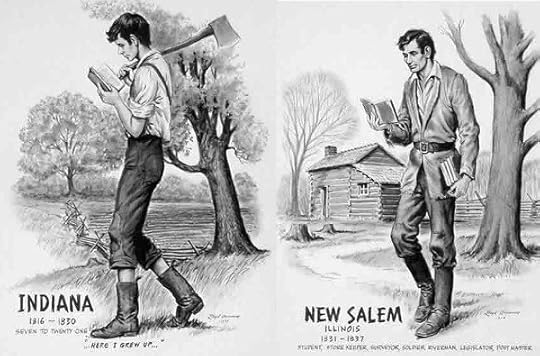
If there is one thing the great men of history have in common it’s this: books. They read, a lot. Theodore Roosevelt carried a dozen books with him on his perilous exploration of the River of Doubt (including the Stoics). Lincoln read everything he could get his hands on (often recording passages he liked on spare boards because he didn’t have paper). Napoleon had a library of some 3,500 books with him at St. Helena, and before that had a traveling library he took on campaigns. The writer Ambrose Bierce, the Civil War veteran and an underrated contemporary of Mark Twain once remarked, “I owe more to my father’s books than to any other educational and directive influence.”
The point is: Successful people read. A lot. And what about us young, wildly ambitious people who want to follow in their footsteps? We have that hunger, that drive, and desire. The question is: What should we read? What will help us on the path laid out for us — and all that it entails?
Now a lot of the right recommendations are domain specific. If you want to be a writer, there are certain books you should read. If you want to be an economist, well, there are genres you need to deep dive into. If you want to be a soldier, there are others too. Still, there are many books that every person who aspires to leadership, mastery, influence, power, and success should read.
These are the books that prepare you for the top, and also warn against its dangers. Some are historical. Some are fiction. Some are epics and classics. These are the books that everyone must have in his library. Good luck and good reading.
Biographies
The Power Broker by Robert A. Caro. It took me 15 days to read all 1,165 pages of this monstrosity that chronicles the rise of Robert Moses. I was 20 years old. It was one of the most magnificent books I’ve ever read. Moses built just about every other major modern construction project in New York City. The public couldn’t stop him, the mayor couldn’t stop him, the governor couldn’t stop him, and only once could the President of the United States stop him. But ultimately, you know where the cliché must take us. Robert Moses was an asshole. He may have had more brain, more drive, more strategy than other men, but he did not have more compassion. And ultimately power turned him into something monstrous.
Titan: The Life of John D. Rockefeller Sr. by Ron Chernow. I found Rockefeller to be strangely stoic, incredibly resilient, and, despite his reputation as a robber baron, humble and compassionate. Most people get worse as they get successful, many more get worse as they age. In fact, Rockefeller began tithing his money with his first job and gave more of it away as he became successful. He grew more open-minded the older he became, more generous, more pious, more dedicated to making a difference. And what made Rockefeller stand apart as a young man was his ability to remain cool-headed in adversity and grounded in success, always on an even keel, never letting excessive passion and emotion hold sway over him.
The Kid Stays in the Picture: A Notorious Life by Robert Evans. If you’re specifically looking to make your way in showbiz, this is the book you have to read. It’s the rags-to-riches, rise and fall and rise of Robert Evans, one of the most notorious figures in Hollywood. From pants salesman to running Paramount Pictures (and producing The Godfather), his story is the one that everyone who heads to L.A. hopes to have. It was one of the first books I read when I started working in the business. I think it shows you how far hustle and hype and heat contribute to success. And how they can also lead to your downfall and exile.
Empire State of Mind: How Jay-Z Went from Street Corner to Corner Office by Zack O’Malley Greenburg. This is a biography that also functions as a business book. It shows how as a young man in Brooklyn, Jay applied hustling techniques to the music business and eventually built his empire. A true hustler, he never did only one thing — from music to fashion to sports, Jay dominated each field, always operating on the same principles. As he puts it, “I’m not a businessman, I’m a business, man!” And related to that, I also recommend The 50th Law, which tells the stories of many such individuals and will stick with you just as long.
The Fish That Ate the Whale: The Life and Times of America’s Banana King by Rich Cohen. This book tells the incredible story of Sam Zemurray, the penniless Russian immigrant who, through pure hustle and drive, became the CEO of United Fruit, the biggest fruit company in the world. The greatness of Zemurray, as author Rich Cohen puts it, “lies in the fact that he never lost faith in his ability to salvage a situation.” For Zemurray, there was always a countermove, always a way through an obstacle, no matter how dire the situation.
The Autobiography of Malcolm X: As Told to Alex Haley by Malcolm X. I forget who said it but I heard someone say that Catcher in the Rye was to young white boys what The Autobiography of Malcolm X was to young black boys. Personally, I prefer that latter over the former. I would much rather read about and emulate a man who is born into adversity and pain, struggles with criminality, does prison time, teaches himself to read through the dictionary, finds religion, and then becomes an activist for Civil Rights before being gunned down by his former supporters when he tempers the hate and anger that had long defined parts of his message. Booker T. Washington’s memoir Up from Slavery and Frederick Douglass’s epic narrative are both incredibly moving and inspiring as well.
Personal History by Katharine Graham. If one thing is certain about your path to success, it is that it will be fraught with adversity. Fate will intervene in ways you would never expect. Which is why you absolutely must read Graham’s memoir. After the tragic suicide of her husband, who ran the The Washington Post and which they both owned, Katharine Graham, at age 46 and a mother of three, with no work experience to speak of, found herself overseeing the Post through its most tumultuous and difficult years (think Watergate and the Pentagon papers). Eventually, she became one of the best CEOs of the 20th century, period. She pulled through and endured with a strong sense of purpose, fortitude, and strength that we can all learn from. In similar regard, read Eleanor Roosevelt’s two-volume biography to see how she managed to turn what was at the time a meaningless position in the White House into a powerful platform for change and influence.
How-to & Advice
The 48 Laws of Power by Robert Greene. It is impossible to describe this book and do it justice. But if you plan on living life on your terms, climbing as high as you’d like to go, and avoid being controlled by others, then you need to read this book. Robert is an amazing researcher and storyteller — he has a profound ability to explain timeless truths through story and example. You can read the classics and not always understand the lessons. But if you read the The 48 Laws, I promise you will leave not just with actionable lessons but an indelible sense of what to do in many trying and confusing situations. As a young person, one of the most important laws to master is to “always say less than necessary.” Always ask yourself: “Am I saying this because I want to prove how smart I am or am I saying this because it needs to be said?” Don’t forget The Prince, The Art of War, and all the other required readings in strategy. And of course, it doesn’t matter how good you are at the game of power, without Mastery it’s worthless.
Steal Like An Artist by Austin Kleon. Part of ambition is modeling yourself after those you’d like to be like. Austin’s philosophy of ruthlessly stealing and remixing the greats might sound appalling at first but it is actually the essence of art. You learn by stealing, you become creative by stealing, you push yourself to be better by working with these materials. Austin is a fantastic artist, but most importantly he communicates the essence of writing and creating art better than anyone else I can think of. It is a manifesto for any young, creative person looking to make his mark. Pair up with Show Your Work which is also excellent.
Status Anxiety by Alain de Botton. Ah yes, the drive that we all have to be better, bigger, have more, be more. Ambition is a good thing, but it’s also a source of great anxiety and frustration. In this book, philosopher Alain de Botton studies the downsides of the desire to “be somebody” in this world. How do you manage ambition? How do you manage envy? How do you avoid the traps that so many other people fall into? This book is a good introduction into the philosophy and psychology of just that.
What I Learned Losing a Million Dollars by Jim Paul and Brendan Moynihan.There are lots of books on aspiring to something. Very little are from actual people who aspired, achieved, and lost it. With each and every successful move that he made, Jim Paul, who made it to Governor of the Chicago Mercantile Exchange, was convinced that he was special, different, and exempt from the rules. Once the markets turned against his trades, he lost it all — his fortune, job, and reputation. That’s what makes this book a critical part in understanding how letting arrogance and pride get to your head is the beginning of your unraveling. Learn from stories like this instead of by your own trial and error. Think about that next time you believe you have it all figured out. (Tim Ferriss recently produced the audiobook version of this, which I recommend.)
Philosophy & Classical Wisdom
Meditations by Marcus Aurelius. I would call this the greatest book ever written. It is the definitive text on self-discipline, personal ethics, humility, self-actualization, and strength. Bill Clinton reads it every year, and so have countless other leaders, statesmen, and soldiers. It is a book written by one of the most powerful men who ever lived on the lessons that power, responsibility, and philosophy teach us. This book will make you a better person and better able to manage the success you desire.
Cyropaedia by Xenophon (a more accessible translation can be found in Xenophon’s Cyrus The Great: The Arts of Leadership and War). Xenophon, like Plato, was a student of Socrates. For whatever reason, his work is not nearly as famous, even though it is far more applicable. This book is the best biography written of Cyrus the Great, one of history’s greatest leaders and conquerors who is considered the “father of human rights.” There are so many great lessons in here and I wish more people would read it. Machiavelli learned them, as this book inspired The Prince.
Lord Chesterfield’s Letters by Lord Chesterfield. Just like Meditations, which was never intended for publication, this is a private correspondence between Lord Chesterfield and his son Philip. We should probably be happy that this guy was not our father — but we can be glad that his wisdom has been passed down. I have not marked as many pages in a book as I have in this one in quite some time. Of course, the classic in this genre of letters is Letters From A Self Made Merchant To His Son. Dating back to 1890, these are preserved letters from John “Old Gorgon” Graham, a self-made millionaire in Chicago, and his son who is coming of age and entering the family business. His letters are an incisive and edifying tutorial in entrepreneurship, responsibility, and leadership. Rilke’s Letters To A Young Poet is also moving and profound. Addressed to a 19-year-old former student of his who sought Rilke’s critique, these short letters are less concerned with poetry and more about what it means to live a meaningful and fulfilling life as an artist and as a person.
Plutarch’s Lives (I & II) by Plutarch. There are few books more influential and ubiquitous in Western culture than Plutarch’s histories. Aside from being the basis of much of Shakespeare, he was one of Montaigne’s favorite writers. His biographies and sketches of Pericles, Demosthenes, Themistocles, Cicero, Alexander the Great, Caesar, and Fabius are all excellent — and full of powerful anecdotes. These are moral biographies, intended to teach lessons about power, greed, honor, virtue, fate, duty, and all the important things they forget to mention in school.
The Lives of the Most Excellent Painters, Sculptors, and Architects by Giorgio Vasari. Basically a friend and peer of Michelangelo, Da Vinci, Raphael, Titian, and all the other great minds of the Renaissance, Giorgio Vasari sat down in 1550 and wrote biographical sketches of the people he knew or had influenced him. Unless you have a degree in Art History it’s unlikely that anyone pushed this book at you and that’s a shame. These great men were not just artists, they were masters of the political and social worlds they lived in. There are so many great lessons about craft and psychology within this book. The best part? It was written by someone who actually knew what he was talking about, not some art snob or critic; he was an actual artist and architect of equal stature to the people he was documenting.
The Book of Five Rings by Miyamoto Musashi. Widely held as a classic, this book is much more than a manifesto and manual on swordsmanship and martial arts. It’s about the mindset, the discipline, and the perception necessary to win in life or death situations. As a swordsman, Musashi fought mostly by himself, for himself. His wisdom, therefore, is mostly internal. He tells you how to out-think and out-move your enemies. He tells you how to fend for yourself and live by a code. And isn’t that precisely what so many of us need help with every day?
Fiction
This Boy’s Life by Tobias Wolff and Totto-Chan: The Little Girl at the Window by Tetsuko Kuroyanagi. If you wanted to read a book to become a successful, well-adjusted person, you probably could not do worse than Catcher in the Rye. Tobias Wolff’s memoir is a far better choice for the young man struggling with who he is and who he wants to be. I also suggest pairing it with the female counterpart: Totto-Chan. The latter is the memoir and biography of one of the most famous and successful women in Japan (akin to Oprah). It’s an inspiring little story of someone who didn’t fit in, who always saw the world differently (sound familiar?). But instead of making her hard, it made her empathetic and caring and kind — to say nothing of creative and unique. (The former is actually fiction but based on a true story. The latter is a true story but reads essentially like fiction).
The Apprenticeship of Duddy Kravitz by Mordecai Richler. Duddy is the ultimate Jewish hustler, always working, always scheming, always looking for a deal, and looked down upon by everyone for his limitless ambition. Duddy never stops in his pursuit to acquire real estate in order to “be somebody” — never forgetting his grandfather’s maxim that “a man without land is nobody.” Except it doesn’t work out like he planned. From this book, you learn that the hustler — the striver — if he cannot prioritize and if he does not have principles, loses everything in the end.
What Makes Sammy Run by Budd Schulberg. A composite figure based on some of Hollywood’s first moguls, the book chronicles the rise and fall of Sammy Glick, the rags-to-riches boy from New York who makes his way through deception and betrayal. Essentially, Sammy is your Ari Gold without the slightest bit of human decency. He’s running from self-reflection, from meaning. It’s fear knocking on the door that he’s frantically trying to block with accomplishments. Sammy is an accomplished man, but not a great man — that takes ethics, purpose, and principles. All The King’s Men by Robert Penn Warren is another similar story — a sort of fictional version of The Power Broker — that tells of the effect that power and drive can have.
The Disenchanted by Budd Schulberg and The Crack Up & The Great Gatsby by F. Scott Fitzgerald. The Disenchanted and The Crack Up are both about the fall of F. Scott Fitzgerald, one from the first person perspective and the other from the fictional eyes of a friend watching his hero fall to pieces — just like the story of Gatsby itself. The Crack Up is a collection of essays, many of which are off-topic, but they had to be — a person cannot look so directly and honestly on their own broken soul without turning away at times. Fitzgerald’s Crack Up has always been illustrative to me and it’s something I’ve thought a lot about. I call it the Second Act Fallacy, and you pity and feel for a man with so much talent and wisdom who was helpless to apply it to himself.
Liber medicina animi — a book is the soul’s medicine.
Of course, the books listed here are by no means all you need to be healthy or fulfilled. It’s just the beginning. But they do make a solid start to your library.
Enjoy and be careful out there. It’s a perilous road to the top.
This post appeared originally on The Art of Manliness.
#mc_embed_signup{background:#fff; clear:left; font:14px Helvetica,Arial,sans-serif; width:100%;}
/* Add your own MailChimp form style overrides in your site stylesheet or in this style block.
We recommend moving this block and the preceding CSS link to the HEAD of your HTML file. */
Get New Posts From Ryan Holiday Sent Right To Your Inbox
May 21, 2017
Loving Los Angeles: 36 Books To Help You Finally “Get” LA
Los Angeles is a hard city to truly love. Not because it’s “always thrusting you away like an unwanted orphan” as John Fante once put it, but because it’s difficult to understand. Sure there is a lot to like—the weather, the food, the space—but love requires something deeper. It requires a deep understanding.
LA is a city that continually obscures its own history and forgets what it has going for it. So it’s no wonder that “getting” it is so difficult. I lived in LA for 5 years and I just could not understand the city, especially in light of other cities I loved like New York or New Orleans. But only after I randomly read a bunch of books that gave me a glimmer of understanding—a hint into its past as a real place with history and people and life—was I really able to appreciate this unique and special place.
It’s a city that launched its own literary genre and some of the greatest American authors who ever lived. It’s a city with amazing architecture (though it loves to tear that down). It’s a city where the second oldest athletic club in the United States costs $100 a month to join. It’s a city that once had amazing public transportation—where you could ride from downtown to Long Beach on a streetcar (which, btw, is what the movie Who Framed Roger Rabbit? is about). It was once the home of everyone from Upton Sinclair to Wyatt Earp and his family. I mean, seriously.
Los Angeles is a city that you’ll love more the more you know about it. These books will help. Plus…they’re amazing.
The Works of John Fante
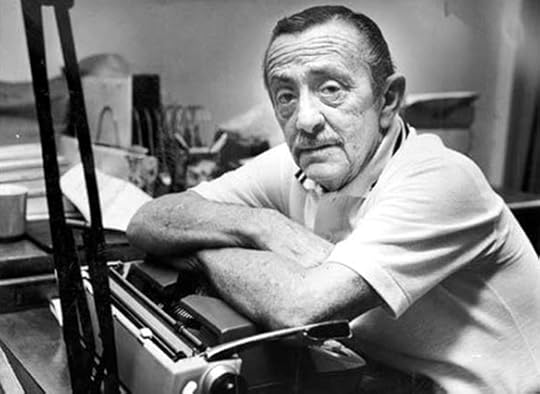
I found John Fante through Neil Strauss, who considers Ask the Dust one of his favorite books. I read it in one day, LOVED it and subsequently read everything by Fante I could get my hands on. It’s like people have been hiding this writer from us—and LA’s only attempt to recognize him is the silly little “square” they named after him Downtown. Fante’s Ask The Dust is the west coast’s Great Gatsby. Fante has benefited from some recognition—mostly thanks to Bukowski championing him in his later years—but because the book is about Los Angeles and not New York City, it is mostly forgotten. Better than Gatsby, it is a series. In one year alone, I read seven Fante novels, one biography by his son and a book of letters between John and H.L Mencken. Arturo Bandini, the subject of his most famous series, is a wonderful example of someone whose actual life is ruined by the fantasies in his head–every second he spends stuck up there is one he wastes and spoils in real life. Of historical note: Fante tells a side of Los Angeles that most people don’t know existed, a side that for some inexcusable reason has been completely forgotten. From Bunker Hill to Long Beach to Malibu—Fante’s works cover all of Los Angeles, usually in different eras. My favorite Fante books, in order, if you need more guidance are: Ask the Dust, Dreams from Bunker Hill, The Brotherhood of the Grape, Full of Life, Wait Until Spring, Bandini, The Road to Los Angeles, 1933 Was a Bad Year. Once you read those, you will almost certainly enjoy Fante/Mencken (HL Mencken was a mentor of John’s), and Fante: A Family’s Legacy of Writing, Drinking and Surviving.
The Works of Raymond Chandler
If Raymond Chandler doesn’t make you love Los Angeles, no fiction writer can. I read every book Chandler published plus a biography in about a week and a half. I’m not sure what drew me to these books originally, but what kept me in them—literally one right after another without stopping—was how great they are. Chandler was a writer who the critics hated but the people loved, which is usually a pretty good indicator that he was onto something. Noir fiction appeals to me because it does what writing is supposed to: immerse the reader in a vivid, entertaining world. That it also happens to hold great insight about life, power, and people is extra. Chandler never forgot that. It’s why you should read him—you’ll be captivated and learn about the city, about people and about the time period. He too covers the full geography of Los Angeles county from the old gambling boats off Santa Monica to Pasadena to Riverside to Big Bear Lake. Chandler often changes the names but it doesn’t matter. You want to live in his Los Angeles, it just feels so much more interesting. Ranking his books in order of my favorites: The Big Sleep, The Lady in the Lake, Playback, The Long Goodbye, Trouble is My Business, The High Window, The Little Sister, Farewell My Lovely, and The Simple Art of Murder. Also read and liked: Raymond Chandler Speaking, Chandlertown, and Raymond Chandler’s Los Angeles (which has some excellent photos).
Southern California: An Island on The Land by Carey McWilliams
Carey McWilliams was a famous public intellectual who lived and loved Los Angeles. It is his words that are inscribed on the statue in Pershing Square:
Then it suddenly occurred to me that in all the world there neither was, nor would there ever be, another place like this city of angels…Here indeed was the place for me, a ringside seat at the circus.
But I prefer a different line from him. In his biography of Southern California he remarks that Los Angeles, which possesses some of the most unique and special geography in the world—from mountains to ocean to desert to valley all within a few minutes drive, should take our breath away. But at the same time we can’t help but feel that with all this potential, the city and culture somehow disappoint us. It’s true. This book explains how and why the city came to be. It also gives you a glimpse as the where some of those problems come from.
Los Angeles Plays Itself
This is not a book but it’s one of the most unusual documentaries I have ever seen. It’s about Los Angeles…as it has been portrayed in the movies over the last one hundred years. As far as I know it will never be traditionally released due to rights issues but it’s usually available on YouTube. The film professor who made this is basically the greatest LA tour guide and historian who ever lived. If you don’t like reading, watch this moving. It’s like a cliff’s notes of all the books here and then some.
Los Angeles: Portrait of a City by David L. Ulin and Kevin Starr
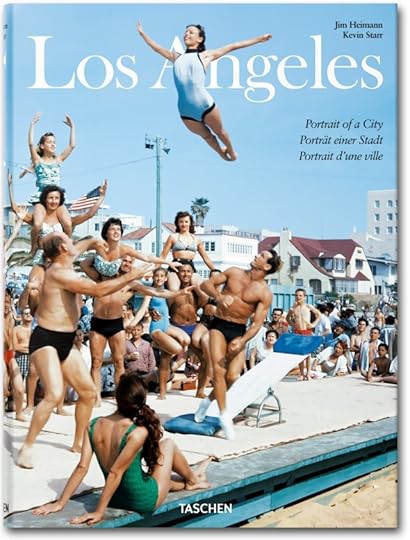
Even though I haven’t lived in LA for 4 years (I live in Austin now), this is the book I have on my coffee table. Yes, it is expensive. I think it’s like $60, but damn it has some of the most beautiful photographs I have ever seen. From the first known photo taken in Los Angeles, to the tragic photos of Bobby Kennedy’s assassination at the Ambassador Hotel and the Rodney King riots, this book encapsulates the entire history of LA in amazing photos.
A History of Forgetting: Los Angeles and the Erasure of Memory by Norman M. Klein and City of Quartz: Excavating the Future in Los Angeles by Mike Davis
I am putting these two books together because they are somewhat academic but nevertheless spectacular. Both are historians who explain Los Angeles’ strange tendency to obscure its own past. A city of reinvention, it likes to deny that it was ever once something else, or god forbid, something better. As Mike Davis points out, Los Angeles once had a world famous stone arch which celebrated the entrance to the Selig Zoo. Every child in the city had seen and loved the animals which decorated the arch. When the zoo closed, everyone forgot about the arch and it was dismantled. A few decades later they found most of the animals in a junkyard in Fontana. Can you imagine this happening to the lions of the of the Central Park Library? Only LA could wipe out it’s own history this way.
The Price of Experience: Power, Money, Image and Murder in Los Angeles by Randall Sullivan
If you liked any of Bret Easton Ellis’ fictions of Los Angeles like Less than Zero and Imperial Bedrooms then you need to read this book. Because it is basically the real life version. Joe Hunt, a delusional genius creates a Ponzi scheme called the Billionaire Boys Club with a group of friends. Living the high life in Los Angeles they eat at the best restaurants and shop at the best stores. They lived in one of the high rises in the corridor between Beverly Hills and Westwood, which I believe still stands. Most incredibly, one of their marks is actually a con man who ends of conning them. As the wheels begin to come off, they descend into violence and murder. And this all happens during the 1984 Summer Olympics in LA. This book is just a fascinating look at the kind of culture that LA had during that era and the worst it brought out (and brings out) in some. This is a truly underrated book.
LA Noir: The Struggle for the Soul of America’s Most Seductive City by John Buntin
This is not related to the video game. It is an excellent book about Los Angeles, crime, the police force and it’s dark period of the 30s, 40s and 50s. I prefer some of the primary sources but this book is great, especially the parts about gangsters like Mickey Cohen. I saw the writer give a talk about it at the Los Angeles Athletic Club a few years back—itself a place that features into the book—and got a lot out of it.
4 Books About the Movie Business (because you can’t understand LA without understanding the biz)
The Big Picture: The New Logic of Money and Power in Hollywood and The Hollywood Economist: The Hidden Reality Behind the Movies by Edward Jay Epstein are the first books I was told to read before I moved to Hollywood. They explain the actual business model of the Hollywood studios (hint: it is NOT box office receipts) and this helps you understand why your actor and writer friends live and act the way they do. It’s why writers can have a house in the Hills without ever having made anything, for example. I also like Hit & Run: How Jon Peters and Pete Guber Took Sony For a Ride In Hollywood because it explains just how incompetent and awful studio heads actually are. Finally, for a glimpse of some old school Hollywood glamour, check out The Kid Stays In The Picture: A Notorious Life by Robert Evans (it’s also a great documentary). Evans is nuts. I’m not sure how much there is to learn about the city itself but it is a fascinating story of some of the people who made the town in the last half of the 20th century—better than fiction. I think it shows you how far hustle and hype and heat contribute to success in LA. And that faith in yourself—deserved, delusional or not—goes a long way.
Los Angeles is an important city to understand. It’s just as old as San Francisco, but it seems like it went wrong somewhere along the way. It had its own version of the Lower East Side (Bunker Hill, which you’ve probably seen in LA Confidential). But where is it now? They tore it down. It wasn’t simply some diabolical plot to destroy a city (sorry, Chinatown) but mostly apathy and as we said earlier, a lack of understanding. The people who live there fundamentally do not understand their own heritage and thus they allowed it to be wrecked, often in the name of “improvement.”
When I left Los Angeles I needed to move out of there so badly. I was just so tired and sick of it. So much about LA is broken and not what it could be—how can a city that very intentionally embraced the car and had forsaken all other forms of transportation have such horrible roads? How could a city with so many sports teams, professional and college, basically not be into sports? How could a city known for it’s awesome weather basically be unbearable when its hot and shut down when it rains? And yet, understanding and reading about it—a lot of which happened after I left—made me love and miss it again.
So understand it now before it’s too late. You’ll thank these authors—not me—if you let them teach you.
This post appeared originally on Thought Catalog.
#mc_embed_signup{background:#fff; clear:left; font:14px Helvetica,Arial,sans-serif; width:100%;}
/* Add your own MailChimp form style overrides in your site stylesheet or in this style block.
We recommend moving this block and the preceding CSS link to the HEAD of your HTML file. */
Get New Posts From Ryan Holiday Sent Right To Your Inbox


